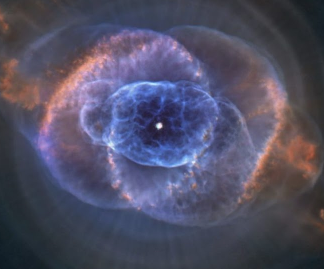I have a split reaction to the rapid spread of Zika virus.
On the one hand, it’s terrifying, especially for the young and fertile. (I don’t have grown children hoping to reproduce, but I do have many nieces and nephews in that demographic.) Our natural self-interest as living organisms and members of a beleaguered species makes it imperative that we understand and control this threat: through immunization, genetic mosquito control, whatever it takes.
On the other hand, through a cold eye, such outbreaks, as well as the cancer plague that now afflicts about one in three Americans during their lifetimes, look like Earth’s immune system trying to control the cancer that is us — sometimes with whatever blunt instrument comes to hand, sometimes with an uncanny laser-guided focus: Zika targets the brain, which is, after all, the source of the trouble. It also appears to be transmitted by sex, the other source of the trouble (being, as it is, what makes more of us).
This leaves me, as a childless human who’s had my three score and ten — so anything more is gravy — feeling that if one of those natural killers came for me, I could have no hard feelings. Why me? Why not? From the host organism’s point of view, I’m one more cancer cell, or locust, or virus. Nature doesn’t care whether you hold environmentally correct views (which would make a difference only if they actually became widespread enough to re-subordinate our collective behavior to the health of the whole and rein in the metastatic human impact). It doesn’t discriminate one human from another. To the ecosystem equivalent of a natural killer cell, it’s not who you are, it’s what you are.
I fear for the young, for whom the stakes are so much higher. Owing their existence to our explosive success as a species, they are also slated to pay its price. They place their hope and faith in the continuing acceleration of our success — specifically, in science’s ability to shield us from Earth’s immune system long enough for us to proliferate and innovate towards some kind of breakthrough. Can we ever be as smart as cancer, which does such a brilliant job of outwitting OUR immune system? Can we be even smarter — figure out how to be fruitful and multiply and still keep our host alive?
We can now say that we HAVE scratched the surface. That is something. But that’s about it.

Reblogged this on dustbury.com in reserve and commented:
For a relatively small mass of cellular material, cancer sometimes seems awfully clever.
Our human intelligence is almost nothing compared to the intelligence of nature, and we can’t push nature around without unexpected bad consequences. Our technological progress has caused the problems, and we expect to solve them with yet more technological progress.
I have been especially interested in GMOs recently. Advocates say GMOs are necessary because our ever-growing population needs ever more food. As if it’s ok for our population to grow without limits. And GMO technology gets increasingly reckless. I read about the new gene-silencing (RNA interference) techniques, for example and was horrified.
RNA sequences that can silence target genes (and untargeted genes that happen to resemble the target genes) are being sprayed on plants. We are not informed, of course, and we eat the plants, and no one really has any idea what these things can do when ingested.
And we can’t simply blame evil Monsanto. There are many very intelligent scientists who think this is perfectly ok. They do not see nature as intelligent. They do not know that they do not understand nature. They think when they mess with nature they are improving it.
Yes cancer is smarter than we are. I didn’t realize it was one in three. People have been fooled by the medical industry into thinking it can be cured.
Not that one in three will die from it; about one in five will. About half of men and a third of women will have cancer in their lifetimes. http://www.cancer.org/cancer/cancerbasics/lifetime-probability-of-developing-or-dying-from-cancer
The meddling with gene editing and RNAi is hubristic and terrifying given that the interactive complexity of what goes on in cells is far beyond our capacity to comprehend and that we have no clue what the unintended consequences may be.
“The meddling with gene editing and RNAi is hubristic and terrifying given that the interactive complexity of what goes on in cells is far beyond our capacity to comprehend and that we have no clue what the unintended consequences may be.”
Yes. All the DNA they don’t understand is called useless “junk.” They believe nature is random and stupid and most of what it creates is garbage. Of course all that useless DNA is probably unfathomably complex computer programs that regulate gene expression.
What if some of their “harmless” micro RNAs match sections of the unfathomably complex gene regulating programs?
Of course they believe the artificial pest-control RNAs can’t survive digestion in mammals. Only in the insects they are targeting. But some researchers have found that it is possible for RNAs to survive digestion in mammals.
The plants we eat may have profound effects on our health in ways that modern science knows nothing about.
But they won’t let us know which plants have been genetically altered or by what technology. Because we are not smart enough to understand and labeling GMOs would only make us suspicious.